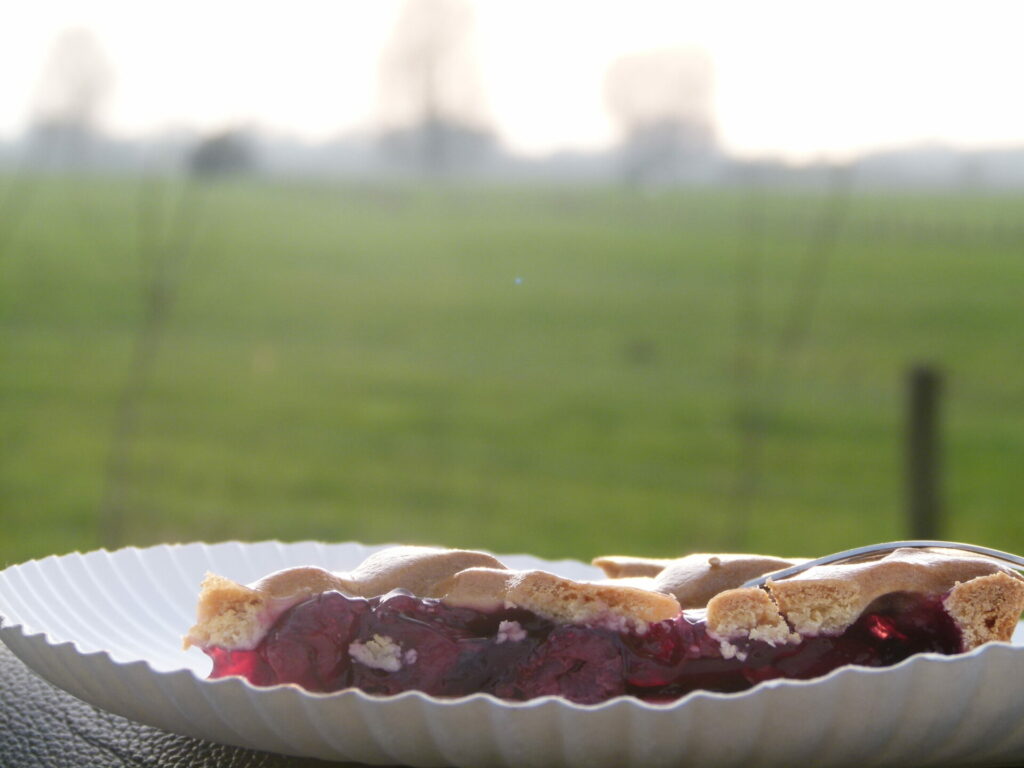Limburg flan or "vlaai", made by bakers in Belgian and Dutch Limburg, will from Monday next week officially be a regional product after a more than seven-year process to receive the label.
The European Commission has officially recognised Limburg flan as a regional product, a recognition that it is rarely given to a product. From 22 January, "Limburgse vlaai" will be given a Protected Geographical Indication (PGI) label, signalling that there is an intrinsic link between product qualities and the location where they are produced.
This means that only bakers within this region will be officially recognised as being able to bake the pastry. Consisting of dough and a filling, the sweet tart will need to meet a series of strict conditions: it must be eaten right after it comes out of the oven and cannot have whipped cream sprayed on it, for example. Those who violate them risk a hefty fine to protect the product against misuse or imitation.
The flan now will be added to the list of 1,683 agricultural products already protected, including cider from Brittany, Serrano ham, the Cantuccini Toscani biscuits, balsamic vinegar from Modena and, closer to home, the almond-flavoured Geraardsberg mattentaartje.
Long time coming
The typical characteristics of this sweet goody are the result of a local working method, which has been respected for generations by Limburg bakers. It is often eaten when family come together to celebrate but also when there is something to commiserate.
The vlaai itself is a round, golden, baked tart, with a diameter of at least 10 cm and a maximum of 30 cm and consists of a thin base (maximum 1 cm, firm enough so a whole slice can be eaten by hand) which is abundantly filled (with fruit, rice pudding, cream, semolina pudding, fresh cheese, a mixture of sugar with egg or a combination of these). Before baking, the Limburg flan can be finished with a lid, slats or crumbs and sugar.
The road to receive the recognition was a long one. It took more than seven years for Peter Nulens from Hasselt and Marcel Roubroeks from Dutch-Limburg Susteren to succeed.
At the end of 2022, their efforts were backed by Belgium’s Flemish region and the Netherlands, who created an appeal to ask the European Commission to protect “Limburgse vlaai". It was exceptional for recognition to be applied for jointly by two countries.
On 22 January, Flemish Agriculture Minister Jo Brouns (CD&V) and Dutch Agriculture Minister Piet Adema will then award the label to the Limburg flan, in the presence of Limburg bakers. A service provided by the Ministry of Economy (and the Foodstuffs Inspectorate in the Netherlands) will carry out the checks.

